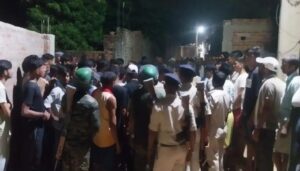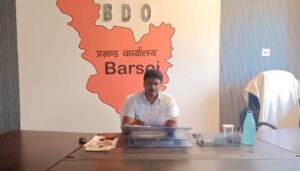
Patna: The Supreme Court of India on Thursday upheld the Election Commission’s authority to revise the electoral roll in Bihar but raised sharp concerns over the timing of the exercise, which comes just months ahead of the state assembly elections.
The court was hearing a clutch of petitions challenging the Commission’s decision to conduct a Special Intensive Revision (SIR) of the voter list. The move has triggered opposition from several political parties, who argue that it could lead to mass voter exclusions and disrupt the democratic process.
“There is nothing inherently wrong with verifying the integrity of the electoral roll or removing non-citizens,” the bench of Justice Sudhanshu Dhulia and Justice Joymalya Bagchi observed. “But what conclusion should we draw when this initiative begins so close to the elections?”
The petitions, led by the Association for Democratic Reforms and joined by MPs across the opposition spectrum—including RJD’s Manoj Jha, Trinamool Congress’ Mahua Moitra, Congress’ KC Venugopal, and representatives from the NCP, CPI, Shiv Sena (UBT), and others—have urged the court to halt the revision process.
Appearing for the Election Commission, senior advocate Rakesh Dwivedi defended the revision as necessary under the Representation of the People Act. He was joined by senior lawyers KK Venugopal and Maninder Singh.
The bench, however, questioned the Commission’s rationale for rejecting Aadhaar as valid proof of identity. When the Commission argued that Aadhaar does not establish citizenship, the court responded: “If inclusion in the voter list is contingent on proving citizenship, you’re entering the domain of the Home Ministry. That’s a separate judicial process—beyond your mandate.”
The justices further pointed out that a mass exercise involving “four to seven crore voters” should not rely on blanket notices or passive exclusions. “This isn’t just about missing paperwork. People who are already on the list are being told: if you don’t respond, you’re out.”
Senior advocate Abhishek Manu Singhvi, appearing for petitioners, argued that the process of voter removal traditionally involves a formal complaint, a hearing, and a verification—none of which were being followed in this case. “This is arbitrary and threatens the integrity of the electoral process,” he said.
The court has not issued a stay on the Commission’s actions but indicated that it would continue hearing the matter, keeping the democratic implications in focus.





